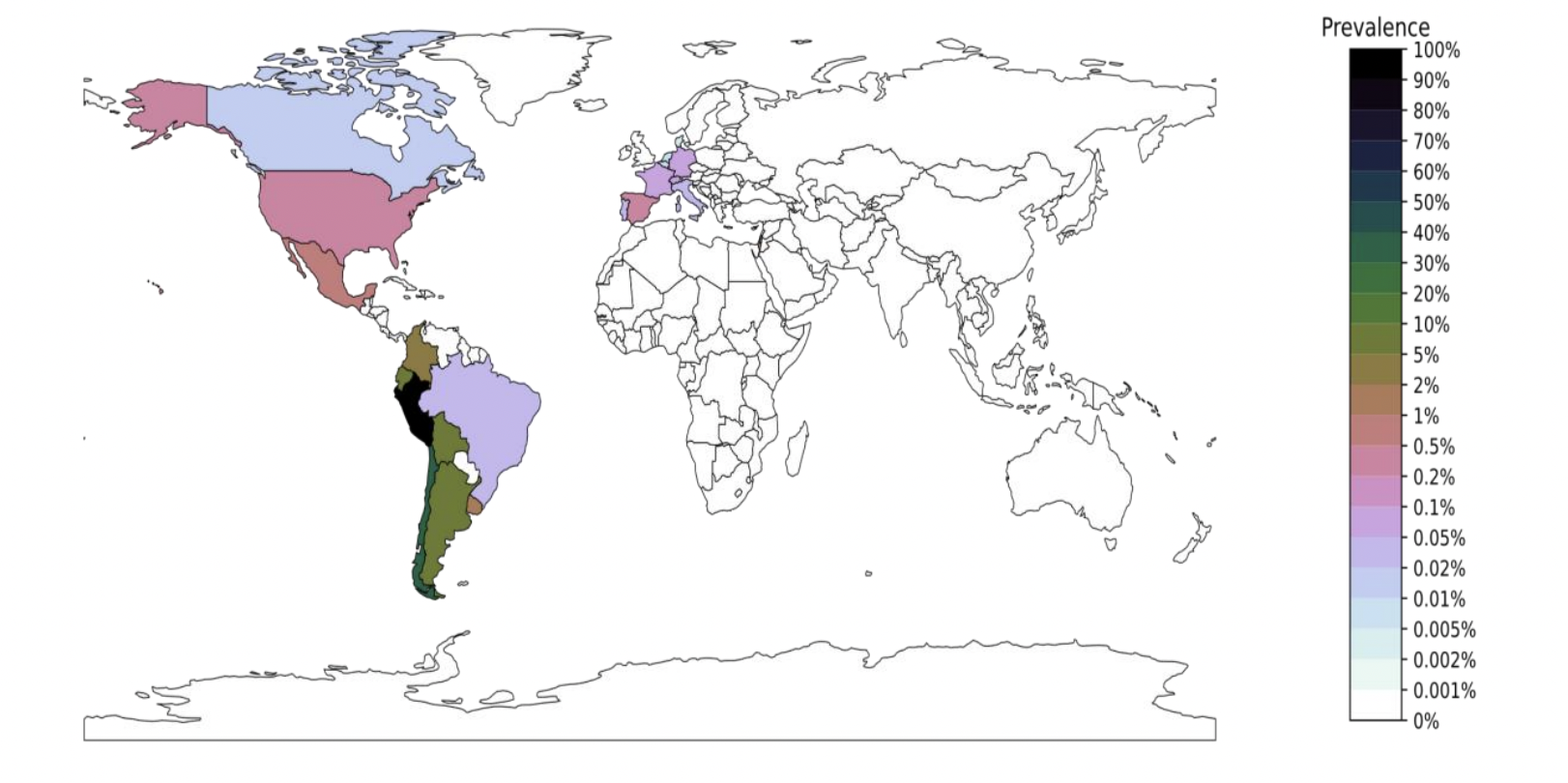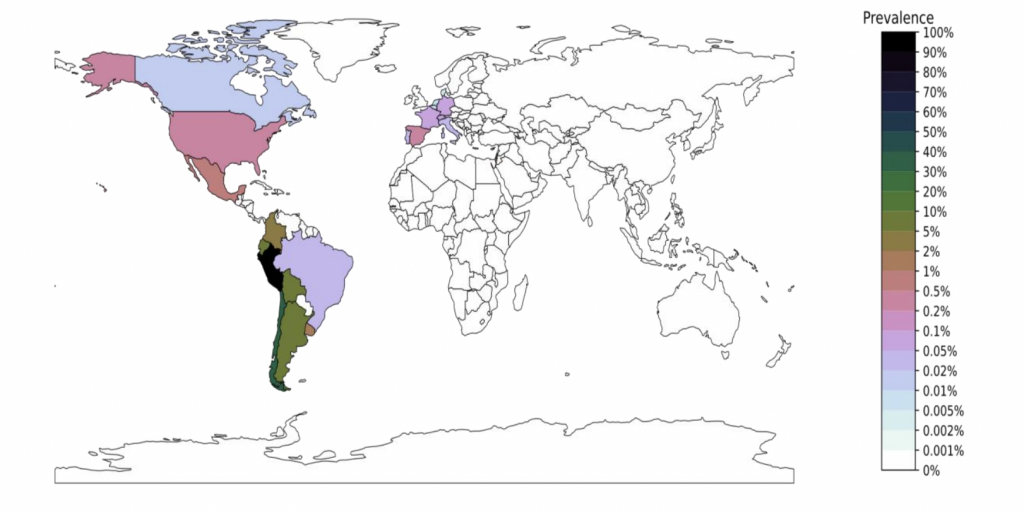
Public Health England
- The Lambda variant is one of the latest to raise concern in the public health community.
- A preprint study suggested the variant's mutation could help it evade antibodies and spread quickly.
- One researcher said it's not perfectly clear yet: Lambda cases are decreasing in some places, while increasing in others.
- See more stories on Insider's business page.
The coronavirus has mutated into several different variants, some more concerning than others.
Lambda is the latest coronavirus variant to garner attention. It was first identified in Peru last year, and has since spread to other countries in South America and around the world.
The World Health Organization declared Lambda a "variant of interest" on June 15, in part due to its unusual and potentially dangerous mutations. That means it's suspected to be extra infectious or dangerous. (The Delta variant also started at that level, before being promoted to a "variant of concern.")
The Lambda variant vs. antibodies
Three mutations in the spike protein of the virus may make the Lambda variant able to resist vaccine-induced antibodies, according to lab studies summarized in a recent preprint paper by Japanese researchers that has not yet been peer-reviewed.
In the paper, the researchers wrote that the Lambda variant could be a threat to human society. "Because the Lambda variant is relatively resistant to the vaccine-induced antisera (blood serum containing antibodies against specific antigens), it might be possible that this variant is feasible to cause breakthrough infection," the authors wrote.
Two additional mutations make the variant highly infectious, according to the study.
However, Dr. Ricardo Soto Rifo, a researcher at the University of Chile, Santiago who is studying the Lambda variant, told the BBC's Health Check podcast it is something to monitor, but not yet panic about.
Lambda is not uniformly dominating
Three months ago in Chile, half of sequenced cases were of the Lambda variant, but that has dropped to around 23%, Soto Rifo said. In Peru, however, the Lambda variant is increasingly dominating, accounting for 80% of sequenced cases now.
"So we cannot say what's going to happen in other countries," Soto Rifo said.
"We have to be worried because it has a pattern of mutations that has been associated [with] immune escape, but we still don't have evidence for increased transmission and we don't have evidence for increasing disease severity, and we don't have evidence showing that the Lambda variant is responsible for immune escape from vaccines," Soto Rifo said.
Research in South America is needed to help the rest of the world understand this variant
As of August 4, there had been at least 1,053 instances of Lambda infection in the US, 12 of which were recorded within the past four weeks. However, the Lambda variant is not yet listed alongside other "notable" variants, such as Delta, on the US Centers for Disease Control and Prevention website.
Soto Rifo said South American countries need funding and resources to sequence and track variants. If Lambda is indeed highly transmissible, it could drive a spike in cases, as has been seen with the Delta variant that's spreading worldwide. More cases also means more breakthrough infections.
But there's not yet any evidence that Lambda will surpass Delta, the most transmissible variant to date.
"I don't think there's any more reason to be concerned than before we knew about this variant," Nathaniel Landau, a microbiologist at the New York University Grossman School of Medicine, told the New York Times. "There's no reason to think that this is now something worse than Delta."

